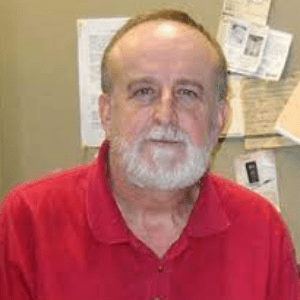Visual Evoked Potentials Conference
Home/ Scientific Sessions / Visual Evoked Potentials Conference
Visual Evoked Potentials
Visual Evoked Potentials (VEP) is a specific test to determine how well your eyes and brain work together. It is a measure of how your brain reacts when you look at something like a flashing light or a pattern on a screen. How your brain reacts is picked up by tiny wires (electrodes) placed on your head and stored by a computer.
This is used to help doctors identify problems in the optic nerves, which carry signals between the brain and the eyes. It is sometimes utilized in order to screen for conditions such as multiple sclerosis (MS), optic neuritis, or other vision and nerve issues. VEP can be performed on infants or people who cannot describe vision in detail.
The test is painless, harmless, and rapid. You just look at a screen while your brain’s response is being measured. If the signals are weak or slow, it may be a sign that there is something wrong or delay in how the brain and eyes are talking to one another.
Related Sessions
1.Alzheimers and Parkinsons Diseases
2.Neuroimmunology and Neurological Infections
3 – Cognitive Neuroscience and Psychology
4 – Neuroinformatics and Computational Neuroscience
5 – Neurological Disorders
6 – Neurobiology
7 – Molecular Neuroscience
8 – Pediatric Neurology
9 – Clinical Neurology
10 – Translational Neurology
11 – Neurogenetics
12 – Neurodegenerative Diseases
13 – Neuropsychiatry
14 – Neuroscience Research
15 – Neuropharmacology and Novel Drug Development
16 – Neurological Interventions and Surgery
17 – Artificial Intelligence in Neurology and Neurosurgery
18 – Neuro-ophthalmology and Auditory Neurology
19 – Aging and Neurology
20 – Brain Tumors and Neuro-Oncology
21 – Stroke Diagnosis and Management
22 – Epilepsy and Seizure Disorders
23 – Psychiatric and Behavioral Disorders
24 – Neurovascular Disorders
25 – Neurology and Systemic Disorders
26 – Neurodevelopmental Disorders
27 – Cognitive and Memory Disorders
28 – Neuroinflammation and Brain Disorders
29 – Neurological Rehabilitation
31 – Trauma and Neurocritical Care
33 – Cellular and Systems Neuroscience
35 – Advances in Neuroimaging Techniques
37 – Rare and Complex Brain Disorders
30 – Global Challenges and Public Health
32 – Neurotoxicology
34 – Behavioral Neuroscience and Social Neuroscience
36 – Addiction and Mental Health
Scientific Program
Keynote Speaker - Dr. Zhenhuan LIU (Oral Presentation - In-Person)
Nanhai Maternity and Children Hospital Affiliated to Guangzhou University of Chinese Medicine, China
Keynote Speaker - Dr. Magda Tsolaki - Oral Presentation (Virtual)
Emeritus Professor of Neurology, Aristotle Univesrsity of Thessaloniki, Makedonia, Greece, Chair of the Greek Federation of Alzheimer’s Disease
Keynote Speaker - Dr. Tatsuro Mutoh, MD, PhD, FAAN - Oral Presentation (In-Person)
Department of Neurology, Fujita Health University Hospital, Toyoake, Aichi, Japan
Scientific Program
Keynote Speaker - Dr. Zhenhuan LIU (Oral Presentation - In-Person)
Nanhai Maternity and Children Hospital Affiliated to Guangzhou University of Chinese Medicine, China
Keynote Speaker - Dr. Magda Tsolaki - Oral Presentation (Virtual)
Emeritus Professor of Neurology, Aristotle Univesrsity of Thessaloniki, Makedonia, Greece, Chair of the Greek Federation of Alzheimer’s Disease
Keynote Speaker - Dr. Tatsuro Mutoh, MD, PhD, FAAN - Oral Presentation (In-Person)
Department of Neurology, Fujita Health University Hospital, Toyoake, Aichi, Japan
Committee Members

Kenneth B Storey
Carleton University, Canada

Kindy Mark
University of South Florida, United

Thomas J Webster
Interstellar Therapeutics, United States
Tags




